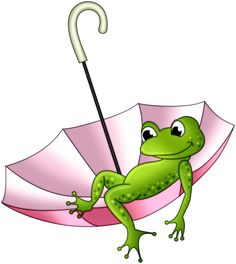This may sound easy, but it really isn't. Believe it or not, doing nothing is a skill that has to be learned! It's been long-recognized that constant "doing" is a kind of compulsion. In that respect, I think that most of us can be classified as having OCD. We just can't stop ourselves from keeping busy. But learning to actually do nothing is a vital skill for all of us in this always-frantic, always-connected society that we now live in.
So what exactly is "doing nothing"? I mean we're always doing something, aren't we?Unless we're dead. Breathing is something, right? By-and-large, doing nothing has come to mean not doing something useful. The problem with this definition is that the word useful comes to mean doing something to better our future...and this doesn't always serve our best interests. Doing nothing means being connected to the present. For me, it simply means feeling alive!
Did you know that aimlessness, restlessness and, yes, even boredom, can stir up our creativity? It's true! Taking time away from your projects gives your mind a sort of incubation period where it can subconsciously get to work with fresh ideas. Boredom often stimulates people to find more interesting ways of doing things. I bet you've had that happen at work, at least once or twice. And when you let your mind wander off aimlessly, you actually help to combat tunnel-vision. Your mind will find new and out-of-the-box ways of looking at things. This is often when we have one of those, "What if..." moments.
Research has shown that too much busyness can be counterproductive. Most times, doing less will actually accomplish more. Haven't you ever noticed that a day spent doing endless mindless tasks is exhausting? Personally, I hate those days. I'd much rather have one project and focus on it. Those days are, for me at least, exhilerating.
Since the industrial revolution, humans have treated themselves like machines. There is no "off" period except for sleep. And many humans get precious-little of that. "I'll sleep when I'm dead", they say. While that is certainly true, if they don't give their brain the downtime it needs, they may get their "dirt nap" sooner than expected!
Doing nothing, at first, will be difficult. The usual guilt about slacking off sets in. In Bhuddism, for example, busyness is actually seen as a form of laziness. It shows that humans have failed to withhold their attention from whatever little drivel, email, or text message comes their way. The best way of learning to do nothing, is to schedule regular "do nothing" time just as you would other tasks and activities. And is exactly what I'm planning to do this weekend.
t won't be easy, though, trying to explain to friends that I'm canceling out on a social event by saying I'm busy doing nothing....But they'll get used to it and, maybe in time, they'll want some "do nothing" time of their own.
I wish you all a wonderful, and boring, weekend! See you back here on Monday...all rested and relaxed

 RSS Feed
RSS Feed